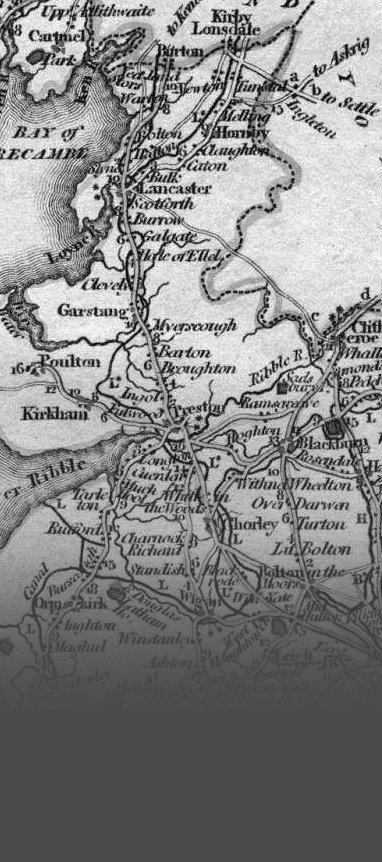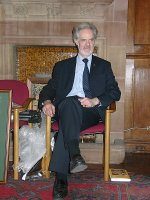

Peter McNiven
27th June 2014
 It is with great sadness that the Society records the death on 24 June 2014, at the age of 69, of Dr Peter McNiven, our general editor from 1984 to 1994 and from 2002 until 2012.
It is with great sadness that the Society records the death on 24 June 2014, at the age of 69, of Dr Peter McNiven, our general editor from 1984 to 1994 and from 2002 until 2012.
Peter was born in Doncaster, Yorkshire, on 22 September 1944. By 1947, when Peter’s sister Tina was born, the family was living in St Helens in Lancashire. Peter was educated at Prescot Grammar School and Manchester University. He gained a First in History in 1965, and was awarded an MA in 1967 for a thesis entitled, ‘Rebellion and Disaffection in the North of England, 1403-08’. His PhD, supervised by Professor John Roskell and awarded in 1977, was on ‘Political Development in the Second Half of the Reign of Henry IV, 1405-13’.
Peter joined the University of Manchester Library in 1969. Although he spent most of his career working in the University Library on Oxford Road (holding a number of posts, including History Cataloguer and Librarian, Guardian Archivist and University Archivist), he will be best remembered for his outstanding work as Head of Special Collections (1988–2000), based in the John Rylands Library, Deansgate. He played a pivotal role in revitalizing the department through the first John Rylands Research Institute, and the ‘Visitor Initiative’ which saw the appointment of the Library’s first Exhibitions Officer and the refurbishment of what is now known as the Rylands Gallery (then the only space open to the public on the ground floor), and the rewiring of the building in 1994. He also coordinated the Library’s successful bid to HEFCE for a major retro-conversion and cataloguing project in the mid-90s. Another of his lasting achievements was the special issue of the Bulletin of the John Rylands Library in 2000, which contained his articles on the history of the Library since 1972 and a catalogue of the ‘Scholar’s Paradise’ centenary exhibition, which remains an invaluable reference tool.
Peter was a highly respected medieval historian who, despite holding an important and demanding role in the University Library, was able to write a substantial monograph (Heresy and Politics in the Reign of Henry IV: The Burning of John Badby, 1987) and many academic articles. He was a Fellow of the Royal Historical Society. In Manchester, he played an active role in many historical societies, including the Manchester Medieval Society, the Chetham Society and the Record Society.
It was Peter’s work as general editor of the Record Society from which he derived particular pleasure, especially after his retirement from the University. He always said that if he could have afforded to be a full-time editor and writer, he would have been very happy. Until serious ill-health dictated otherwise, he did work on behalf of this Society in a near full-time capacity from 2002. His work always extended well beyond the vital oversight of layout, or of printing and binding – the bread and butter tasks of a general editor. The late Professor RHC Davis credited Peter with ‘great scholarly skill’ for his arrangement of the documents in our volume 126, published in 1988, The Charters of the Anglo-Norman Earls of Chester, c.1071-1237, edited by Professor Geoffrey Barraclough who had died in 1984. Peter certainly went well beyond a general editor’s role to help with the transcription of the texts of the second and third volumes of Henry Prescott’s Diary, work recognised by naming him as joint editor on their title pages. In all, he supervised the publication of some eighteen volumes. Though three lay in his own specialist academic area of later medieval England, most post-dated medieval times: ‘his’ volumes ranged from the eleventh century to 1929! He achieved an almost equal spread of subject matter between the two palatine counties.
When colleagues and friends reminisce about Peter, the most common description of him is that of a ‘true gentleman’. This is not to say that he was quaintly old-fashioned; he was not. He disliked being a ‘boss’, although ironically he was good at it. He was a fair man and an exceptionally kind and compassionate person who commanded great respect from all who knew him. His interests were wide. Beside historical pursuits, he was an accomplished amateur ornithologist, artist, budding novelist and a great political and sports pundit. He will be sorely missed by all of us who were privileged to know him.
In 2002 Peter and his wife moved to Carmarthen when Betty became a vicar in the Church in Wales. Together they coped with several personal and family tragedies which would have broken most people, including the death of their eldest son, John, at the age of 27. They have supported Joanne and their four grandchildren in a quite remarkable way. Peter was an unassuming man with a self-deprecating wit, but he was fearlessly supportive of his friends and family. He was immensely proud of Betty’s position as a pioneering ‘female priest’, skilled tailor and craftswoman; and of his younger son’s academic achievements in a field (Physics) about which he was, on his own admission, sadly ignorant.
There will be a family funeral for Peter in South Wales on 7 July. A memorial service will be held at St Wilfrid's in Northenden on Thursday, 28 August, at 11am.
If anyone would like to write to Betty McNiven, please email Dorothy Clayton for contact details dorothy.clayton@manchester.ac.uk
Dorothy Clayton
Council Secretary
27 June 2014